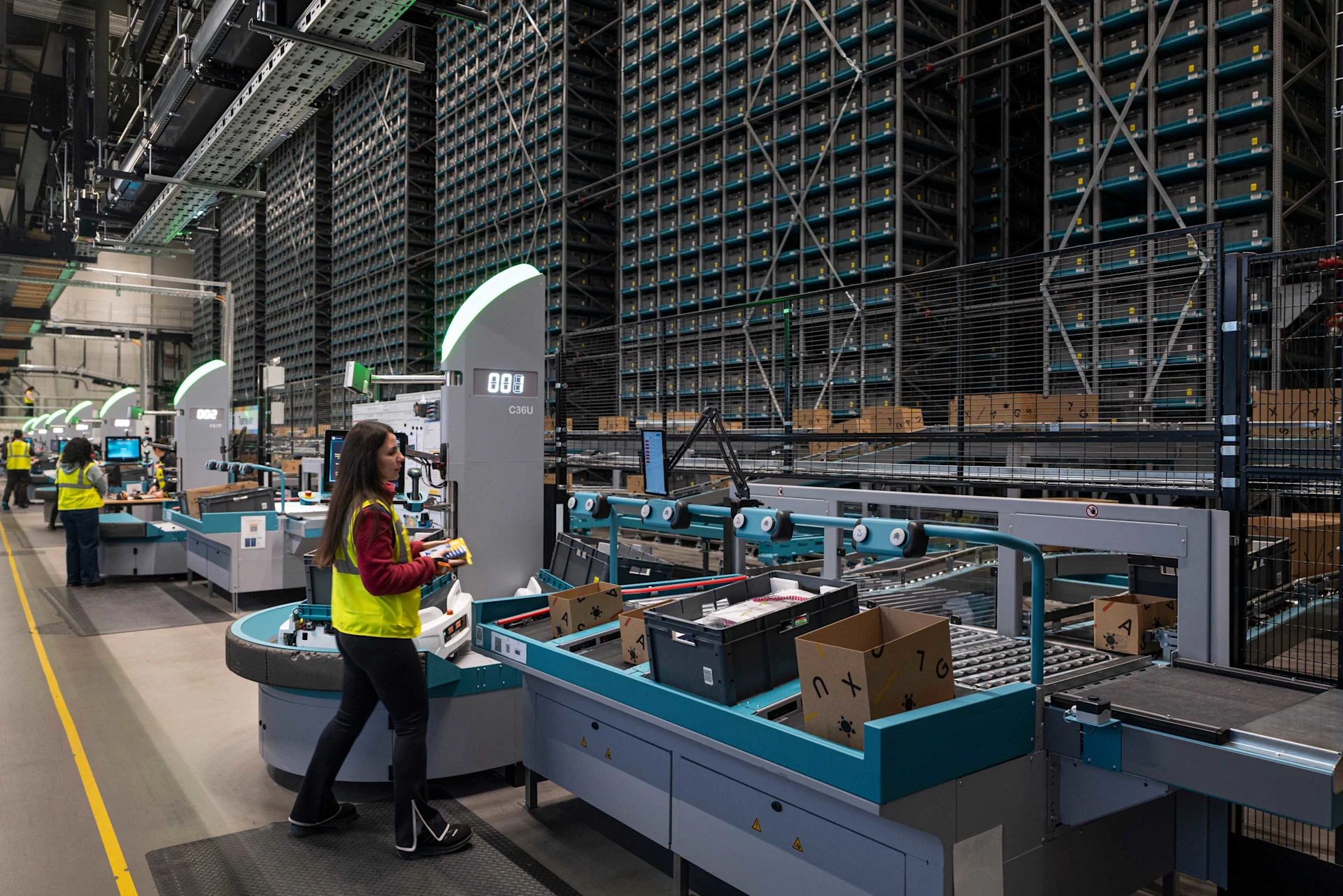
Work environment
Where our presents come from
We visited the huge Digitec Galaxus logistics centre, which is a hive of activity over the Christmas period.
navigation

Work environment
Unconscious bias help us to assess people more rapidly, but can also create unfair prejudices. We explain what psychology says about this mechanism and how Migros promotes equal opportunities.
Your new neighbour is from Italy? - She's undoubtedly fun-loving and loud! That man in the business suit? - Rich and determined!
Unconscious bias and clichés are rough categories in our heads into which we sort other people based on external characteristics such as their gender, age, skin colour or appearance. "As a result, we view a person as a member of a certain group rather than as an individual," explains Christa Nater from the Institute of Psychology at the University of Bern.
These strong generalisations are shaped and passed on by socialisation, the media and our personal environment.
Because unconscious bias helps the brain to simplify our extremely complex world and make sense of social situations faster. For example, on a train, when we wonder if we can entrust our luggage to the stranger sitting next to us.
"We use mental boxes to gauge what to expect when we meet another person," social psychologist Nater says. The less we know about our counterpart, the more influential unconscious biases are.
Children learn how to sort people into different categories at an early age. This is particularly pronounced in the case of gender roles. Based on their everyday observations, upbringing and cultural influences, children form ideas (i.e. stereotypes) about what it means to be female and male, sometimes even before starting school.
For example, because women are much more likely to have long hair, children associate hair length with a certain gender. Long-haired men can therefore cause consternation.
As they grow up, children see that men are more often found in leadership roles, and thus associate characteristics like assertiveness more with men rather than women.
No! Prejudice always involves an evaluation, usually a negative one, Nater says. This isn't yet the case with clichés or unconscious bias.
Example: There's a free seat next to an elderly woman on the tram. Unconscious bias: "The woman is hard of hearing, slow and talkative." Prejudice: "She will probably want to get me into an annoying conversation."
Absolutely, says Christa Nater. "The grain isn't even that small." By way of an example, she cites the phenomenon that women are more often associated with social skills than men. They are seen as more caring and compassionate. "In fact, many women describe themselves in exactly the same way," Nater says.
The cliché is reinforced by the fact that it's still predominantly women who do care work such as looking after children or relatives. Men, on the other hand, are seen as assertive, courageous and ambitious because these skills are required in managerial positions, the majority of which continue to be held by men. This is therefore a self-perpetuating cycle.
It's still the case in Switzerland today that girls are less likely to choose technical or scientific careers, while boys are less likely to go into care professions.
When the images in our heads cause us to automatically treat other people less favourably, for instance on the labour market: "Experimental studies have shown that an applicant called 'Martin' is more likely to be invited to an interview for a managerial position than a "Martina' with the same qualifications," Nater reports.
People with foreign-sounding names also find it harder to get the nod for an apartment. "It's important to question stereotypes in order to combat inequality."
In a society that strives for fairness and equal opportunities, people mustn't be systematically discriminated against on the basis of their gender, skin colour, religion or background.
By becoming aware of our unconscious biases. We can train ourselves to pause for a moment whenever we meet someone new and question our spontaneous judgement of them: Ask yourself, "Do I really have enough information about this person to judge them appropriately and impartially?"
Christa Nater emphasises that we should slow down our decision-making, especially in stressful situations or when we're under pressure, since this makes it easy for unconscious bias and prejudice to get the upper hand.
Being open to new experiences and seeking contact with people from other social groups also trains you to keep a more open mind.
Whether at a desk, in a store or in a laboratory – our work environment is diverse, just like the people behind it. Discover their stories.